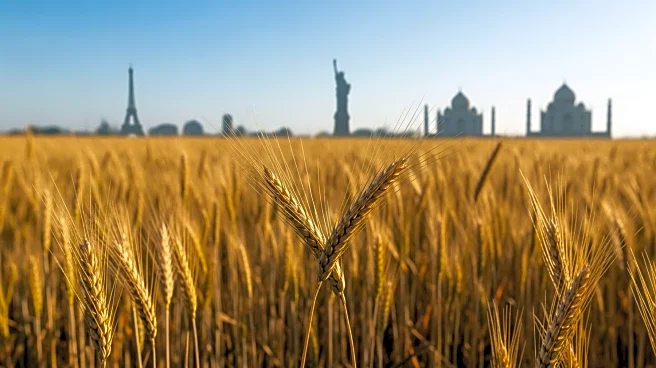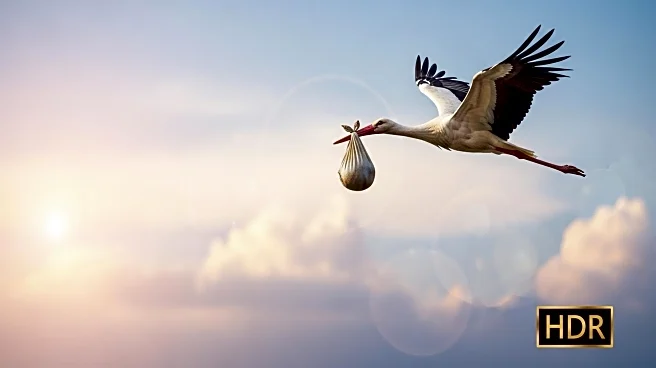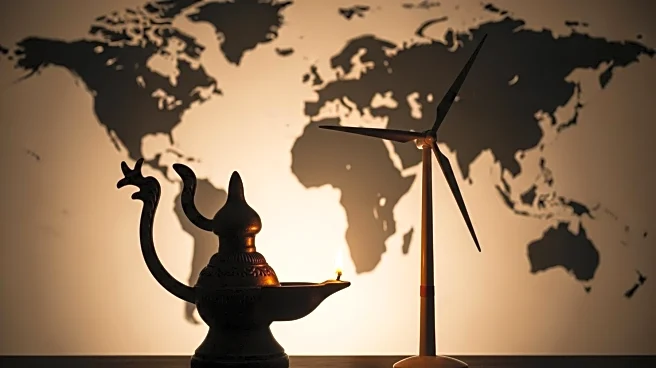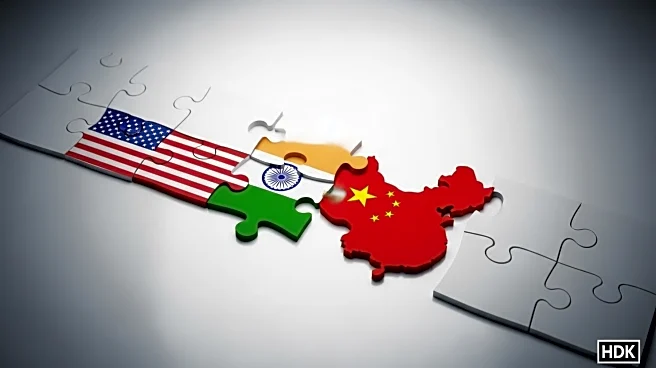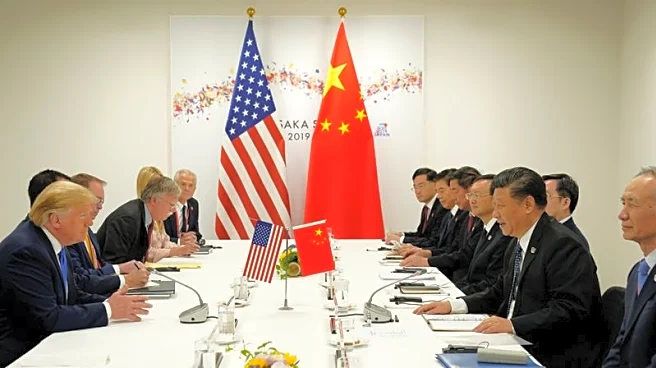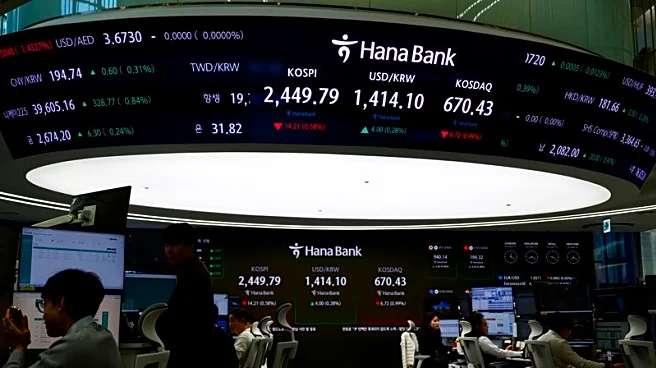What's Happening?
Russia has resumed wheat shipments to Indonesia after a pause since January, according to the state agriculture watchdog. The resumption follows negotiations between the two countries over access for Russian grains, with Indonesia's Quarantine Agency
agreeing in August to extend safety certificates for Russian grains. This agreement has facilitated the supply of 52,000 metric tons of wheat in October. Russia's agriculture export agency, Agroexport, projects grain supplies to Indonesia, mostly wheat, to reach 1.3 million tons in 2024. Prior to this new agreement, Russia had supplied only 123,000 tons of grain this year, all in January. Russia is aiming to diversify its wheat exports to Asia, facing competition from the United States, which is expected to increase its supplies following trade deals with Asian countries.
Why It's Important?
The resumption of wheat exports to Indonesia is significant for Russia as it seeks to diversify its export markets beyond the Middle East. This move comes amid a global oversupply and low prices that have impacted Russia's wheat exports this year. The agreement with Indonesia could provide a boost to Russian exporters, especially if a free trade agreement between the Russia-led Eurasian Economic Union and Indonesia is finalized, potentially eliminating import duties on grains. This development could enhance Russia's competitive position in the Asian market, where the United States is also expanding its presence. The outcome of these negotiations could have broader implications for global wheat trade dynamics and pricing.
What's Next?
Russian officials and businessmen are scheduled to visit Indonesia for agriculture trade talks on October 17. These discussions may further solidify trade relations and explore additional opportunities for Russian agricultural exports. The potential free trade agreement between the Eurasian Economic Union and Indonesia could lead to a gradual phase-out of Indonesia's import duty on grains, providing further support for Russian exporters. The evolving trade landscape may prompt other countries to reassess their trade strategies in the region, particularly in light of increased competition from the United States.
Beyond the Headlines
The resumption of wheat exports to Indonesia highlights the strategic importance of agricultural trade in geopolitical relations. As Indonesia joins the BRICS Plus group, which includes major emerging economies like China, India, and Russia, the dynamics of international trade agreements and alliances may shift. This development underscores the interconnectedness of economic policies and international diplomacy, with potential long-term impacts on global trade patterns and economic alliances.
